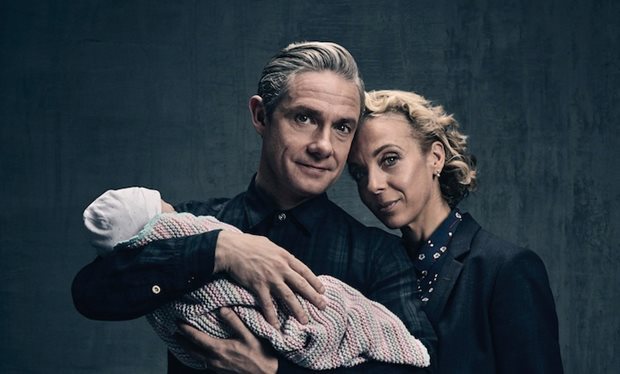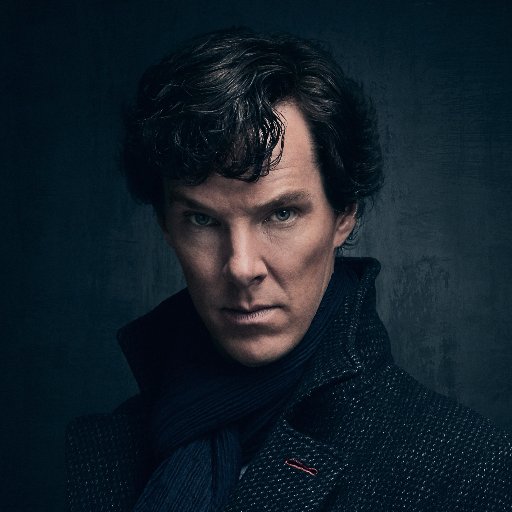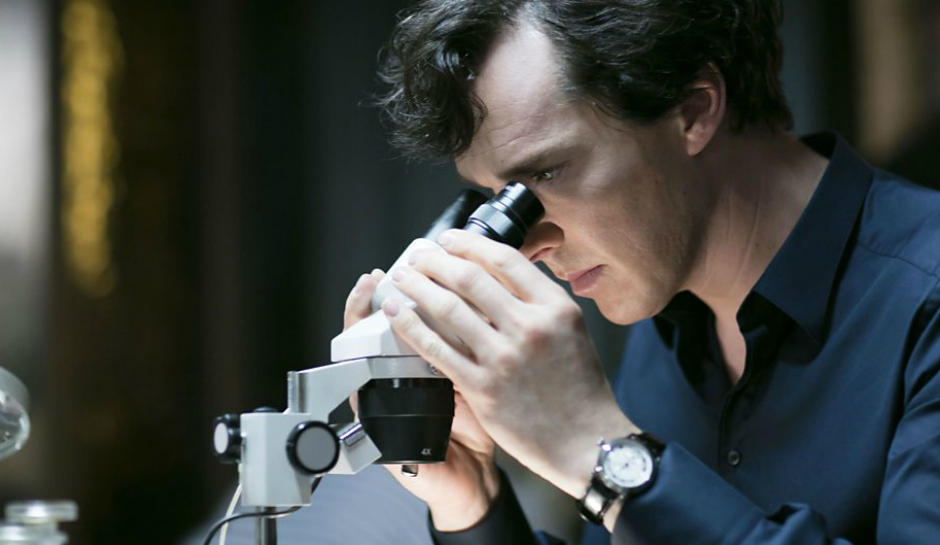Sherlock Review: The Six Thatchers

WARNING: THE FOLLOWING REVIEW CONTAINS MAJOR SPOILERS FOR “THE SIX THATCHERS.”
You can listen to our podcast reaction episode below or follow the link.
One year from “The Abominable Bride.” Nearly three from the last regular-season-order episode “His Last Vow.” The combination of seemingly-interminable hiatus, international build, and a fandom given to painstaking analysis means that “The Six Thatchers” came onto screens less like a single episode of a mystery series and more like the receptacle of the collective weight of metric tons of expectations.
The question is: Did it deliver?
The answer is a complicated yes and no and maybe. I’ll delve into all three, in an effort to make a complicated episode (and the complicated opinions of members of our podcast) into something coherent.
First of all, what delivered? Without a doubt, the core cast of Sherlock is one of the finest in the business and perhaps one of the best ensembles that has ever graced television screens. With his usual sharp precision, Benedict Cumberbatch settled into the role of a Sherlock Holmes who is on edge but still completely recognizable as the established character. His rapid-fire deductions during the case montage were as entertaining as ever, and his smugness when he tracked Mary’s location and confronted her was a wonderful cheeky moment. Even more enthralling, in my opinion, were his razor-edge interactions with Mark Gatiss’s phenomenal interpretation of Mycroft, one of the only characters who is consistently able to unsettle our hero and bring his vulnerable side forward. Rupert Graves’s Lestrade, Louise Brealey’s Molly, and Una Stubbs’s Mrs. Hudson were all on point, though not extremely prominent in this episode. (We hope for more of them in the coming weeks.)
When all is said and done, though, the acting plaudits for this episode belong most of all to Amanda Abbington and Martin Freeman. Freeman’s Watson is, as always, a multi-layered man with a seemingly-simple facade that overlays a world of emotion and passion. The final scenes, of course, have pulled a great deal of focus from the rest of the episode, but Freeman plays the earlier scenes of the quiet desperation of a new father losing touch with his wife and experiencing the temptation of another woman with piercing vulnerability. He’s an actor who never settles for the comfortable version, and he forcibly compels the audience to feel his internal conflicts. Abbington, in her swan song on the show, plays a Mary whose past has finally caught up with her. We watch her, like a hunted animal, run from the inescapable, and she’s mesmerizing on screen. Even in scenes that, as plot points, I didn’t care for, I found her screen presence enthralling. Her Mary is by turns brittle, sweet, funny, and finally desperate. In the end, she made me care. As Babe Ashley Polasek says in our reaction episode, even though she didn’t particularly enjoy how the episode arrived at it, Mary’s death made her cry. It was just that well-played. The chemistry between Freeman and Abbington as John and Mary wasn’t so much tender as brutal, and when they finally said goodbye, their pain mingled into something almost unbearable to watch in its intensity.
I’d also be remiss in not mentioning the wonderful direction of Rachel Talalay, new to Sherlock, but veteran of hits like Doctor Who and The Flash. Her deft hand brought atmosphere, style, and beauty to the episode and made some very complicated sequences work and retain visual coherence. “The Six Thatchers” has a gorgeously operatic quality, and the bold images of the aquarium, the stark simplicity of Mycroft’s office, and the richness of the foreign settings created a feast for the eyes.
Finally, the episode had many brilliant references to the Doyle Canon and the world of pastiche. Most prominently, the overarching plot was a very high concept take on The Sign of Four, in which the Agra treasure that should belong to Mary Morstan is lost at sea. As a part of AGRA herself, Sherlock‘s Mary meets her demise under water (in the London aquarium). Seen as a unit, “His Last Vow” and “The Six Thatchers” play out the story arc of the novel. Additionally, the concept of six busts of a historical figure being destroyed is a reference to “The Six Napoleons,” one of Doyle’s stories, which has the solution that Sherlock expects in the episode–the missing Black Pearl of the Borgias. When Mary takes her around-the-world jaunt, each disguise is a reference to a Canon case or disguise Holmes used. A more emotional reference is the use of “Norbury,” a name in the episode, but a place in Doyle’s story “The Yellow Face.” In both cases, Holmes makes an error in judgment, and the word “Norbury” comes to symbolize his own awareness of his tendency toward hubris. Of course, Mary’s death is Canonical as well; after the Great Hiatus, Watson mentions that he’s lost her, but he doesn’t specify how. Acclaimed pastiche author Nicholas Meyer also received a direct shout-out in the episode, through the title “The Canary Trainer,” one of his books. (The showrunners enjoy referencing Meyer; they referred to his most famous Sherlockian work, The Seven-Per-Cent Solution, in “The Abominable Bride.”)

Unfortunately, alongside these brilliant elements, other aspects of the episode didn’t quite work as I’d hoped. I could come at this from several angles, but since this review is already getting long, I’ll try to keep it concise. If you listen to our upcoming reaction podcast, you’ll hear that we had strong criticism of the plot of “The Six Thatchers” and of the implications of what it means for the future of the series.
First, taking the plot alone. It was meta. (I’m not even sure meta is a strong enough word for how self-referential it was). We in the Babes enjoy a bit of meta, and for the most part, we were big fans of “The Abominable Bride,” which was about as meta as you can get–or so we thought. The problem is, at least partially, a context issue. A one-off Christmas episode can take a mind-palace trip that shows us Victorian versions of our beloved characters and dissects their psychology. By placing them back in their original contexts it bought the collateral necessary to get away with it. That is most definitely not the context we find ourselves in with “The Six Thatchers.” We’re back in the “real world” with our modern heroes and their daily jobs and problems. But apart from very brief deductive montages, we didn’t have an episode of Sherlock Holmes being Sherlock Holmes, solving cases, being a detective. We were almost entirely in navel-gazing territory, where the characters’ problems were almost entirely created by themselves. At some point, if Holmes spends most of his time solving problems created by or primarily involving him (the ending of the ep) and his friends (most of the rest of it), there’s a curiously claustrophobic and inward feeling to the action. Even as it goes global, it feels small, smaller than it should.
This episode also asked viewers to accept the idea that John Watson, a character whose loyalty to his friends and loved ones has been his primary trait in the series thus far, is carrying on a late-night extramarital flirtation while his new baby cries in the next room. Three-Continents Watson might be flattered by a woman’s attention on a train; the man we know and love, however, would not let it go beyond that. He’s not perfect, but nothing in the series or the source material paints him as anything other than a faithful partner. I understand the plot’s reason for this–the fact that Watson’s anger at Holmes after Mary’s death is projected anger at himself. That’s possibly the biggest problem. It feels like John’s actions served the plot, rather than the other way around.
Finally, as enjoyable as it was to watch Mary traveling the world as different characters (and it was great fun), it was all a bit much. Sherlock has always had a heightened quality, but it’s anchored in reality. The international espionage elements of “The Six Thatchers” didn’t feel in any sense anchored in reality, and the previous episode it called to mind, in our opinion, was “The Blind Banker,” which also struggled with feeling a bit ridiculous for similar reasons. (Don’t get me wrong; as with this episode, there are aspects of “The Blind Banker” we greatly enjoy, but along with many fans, we consider it one of the weakest of the series.) This criticism has nothing to do with the stellar performances. In fact, if this is Amanda’s James Bond audition, we heartily support her being cast as the first International Woman of Mystery.
In a more general sense, we’re concerned about what this episode says about this show’s trajectory. Sherlock has always been a show about a detective, rather than a detective show; that’s a given. One of the main things that drew us in at the beginning was the side-by-side interplay of what we learn about the man through the mysteries he solves. Memorable moments like Watson yelling about Holmes’s lack of care, Holmes asking whether something is “not good,” and the heart-shattering moment of the Reichenbach Fall were all wonderfully poignant character moments, but those moments were earned by being integral parts of the mysteries the episodes and seasons presented. Once those mysteries fall away, the series becomes nothing but a very heightened show about the relationships between an extremely small group of people. “The Six Thatchers” was phenomenally acted, but in the end, the primary story wasn’t much of a mystery at all.
If we take Sherlock Holmes out of his time, that’s fine. If, as in TAB, we put him back in his time and change up the focus of his story, also fine. What concerns us most is this episode seemingly trying to do both–giving us the modern Holmes of most of Sherlock (obviously), but failing to give him back his primary function as a solver of mysteries. Additionally, by placing such a huge rift between Holmes and Watson, while taking Watson somewhat out of character, the show has also endangered the primary relationship of the source material, the core friendship between the detective and his doctor. Holmes alone is not the Holmes we know and love; he’s diminished. To be fully realized as a character, he needs his Boswell (or blogger).

Let’s finish up on the maybe question. We don’t know what’s coming in the rest of this series of Sherlock beyond general information, and it’s possible we may end up with a different view of “The Six Thatchers” by the end. The Moriarty question still looms over the show, and one of our criticisms in this episode was that it didn’t link Sherlock’s ongoing obsession with any tangible clues. We may find later, however, that it dropped clues we didn’t grasp. Also, if the resolution of the Holmes-Watson rift is strong enough, we may look back and find that the conflict was worth it, or at least less troubling. More than anything, if the next episodes return to tightly-plotted mystery with clues and deduction, we’ll be very grateful, because while we love the characters of Sherlock dearly, what we love most is learning about them while they do the work of solving mysteries in the world around them.
I’ve now seen “The Six Thatchers” three times, and I thoroughly enjoyed each viewing. Even when, in our opinion, Sherlock isn’t quite firing on all cylinders, it’s still very good television with excellent production values. Though not our favorite in terms of story, this season opener will live on in our minds for its beautiful visuals and stunning performances, and we will miss Amanda Abbington’s presence. Criticism aside, she made Mary vibrant and alive and wonderful, and we won’t forget her or what she added to the world of the show.
You can listen to our podcast reaction episode below or follow the link.

Amy Thomas is a book reviewer, freelance essayist, and author of The Detective and The Woman mystery novel series featuring Sherlock Holmes and Irene Adler, published by MX Publishing. She holds a degree in professional communication and is an avid knitter, geek, and grammar nerd. Amy blogs about Sherlock Holmes at Girlmeetssherlock.wordpress.com and can be reached for professional enquiries at nottinghillnapoleon@gmail.com. Connect with her on Twitter @Pickwick12.
[…] originally written for the Baker Street Babes, and I’m sharing it here. It can also be found here on the BSB […]
Here’s my two cents. I’m less forgiving than you but as a traditional Sherlockian who has never seen a cinematic Holmes that comes close to the stories (Yes, I include Granada), I probably have unrealistic standards.
It’s hard to judge “The Six Thatchers” (it should really be called “The Thumb-drive of Four”) by only watching it once and without the context of the other two episodes of Series Four, but while not “The Blind Banker” bad, it certainly makes you realize how low the whole enterprise has slid after the absolute brilliance of “A Study in Pink”. This is because Sherlock has killed off its most silly but best reinterpretation, assassin Mary Morstan. (Yes, “assassin Mary Morstan” rolls off the tongue like Professor Frink doing his best Jerry Lewis.)
It’s here that we realize that Mary Morstan is not only as intelligent as Sherlock, but his martial superior (Sherlock fights AJ to a draw but he doesn’t have her weapons training) and is the only adult major character on the show. The opening scene at the intelligence debriefing with Sherlock and Mycroft doing their Two Stooges act was not comically endearing, but indeed made worry that “I’m-a-drug-user-not-a-drug-addict” Sherlock was as high as a kite, despite his protestations to the contrary. And Mary does all this while being a sleep-deprived mother to an infant.—AND, as filmed, she is literally faster than a speeding bullet! She jumps in front of Sherlock after the gun was fired and the bullet was shown heading straight to Sherlock’s gut. Amanda Abbington is THE Woman at a leagues-higher level than Laura Pulver.
This leads us to the continuing deconstruction of John Watson from Sherlock’s moral conscience and outside-world interface to, in Series Three, Sherlock’s bitch and in “The Six Thatchers” clay-footed and penchantly infantile. Really, Watson engaging in a flirtation, if not outright affair with a stranger on a bus? (How convenient he doesn’t use his car to go to wherever it is he goes to during the day–his practice?) Not only would the Canonical Watson never cheat on Mary, but I can’t even imagine a married Nigel Bruce doing that, no matter how many buckets he’d step in.
John’s blaming Mary’s death on Sherlock is the ultimate in Watsonian stupidity. Hello! Even Sherlock Holmes can’t stop a woman who can move faster than a speeding bullet. Mary willingly sacrificed her life to save Sherlock’s, despite the fact that the supposedly brilliant detective idiotically goaded a cornered woman with a gun.
Will we ever find out what Moriarty’s posthumous revenge will be or is that to be another Moftissian deus ex machina “commit murder free” card designed to get them out of the plot corner they painted themselves into. I still haven’t forgiven them for the “there’s a clue everybody missed” how-Sherlock-survived-the-fall solution that they never gave us. Sherlock’s explanation to Anderson in “The Empty Hearse” was pure rubbish. With Culverton Smith as next week’s villain, I don’t see that episode addressing the Moriarty plotline.
So I’ll reserve ultimate judgment until I’ve seen all of Series Four, but certainly “The Six Thatchers” is a disappointment. Perhaps Moftiss should have given us their version of Alias with Amanda Abbington as Sydney Bristow, mother and assassin of A.G.R.A. It seems like they are a better fit for JJ Abrams than ACD.
Yes. This summarised and wonderfully articulated many of my issues with the episode, and also the enjoyable bits about it.
An excellent review.
Hoo boy, I think you all are going to be incredibly surprised by the turn Sherlock takes in the next two episodes.
John hasn’t truly loved Mary since she shot Sherlock. He is only with her because she is incredibly dangerous to both him and Sherlock, and because he wants to be with his daughter. The person he’s texting at night is *Sherlock*, his true love, and the person he said goodbye to, having gotten to know them a little, was the woman at the bus station. He has not been cheating with the woman, though he was flattered by her interest.
Sherlock *is* solving a serious mystery: the mystery of John’s heart. He went to a therapist to try to understand what he needs to do to help John through his loss. This is a HUGE mystery to Sherlock. People are a mystery to him, emotionally.
He also has to solve the mystery of what Mary meant with her threat to “save John Watson”. She is probably in league with Moriarty, tasked with burning the heart (John) out of Sherlock. John is in serious danger. Mary might not even actually be dead!
This show is, and has always been, about the relationship between Sherlock and John and their love for each other. That is what the next two episodes will be about, explicitly, to help those who haven’t done their research to understand at last.
I agree that John’s affair is out of character, but I don’t think that’s what was actually happening. E (the lady on the bus) is played by Sian Brooke, who also plays the lady in red with the glasses and cane in The Lying Detective. She has completely different hair in TLD, which suggests she’s wearing a wig on the bus. Perhaps she’s one of Sherlock’s regulars and is passing coded messages to him (“Night Owl? Vampire” sounds a lot like Lazarus or Vatican Cameos). Or maybe she’s a more sinister agent. Either way, I can’t wait for the next episode!
Great review. But as the others commented, after watching it several times, I don’t believe what my eyes saw. I may be wrong entirely and do not profess to have a modicum of understanding of Sherlockology as others do but I am completely suspicious of the entire situation. First, it is extremely difficult for me to believe that neither Sherlock or Mary, knew of John’s flirtation with the woman on the bus. Second, she was entirely too conveniently placed. Third, it is strange to me that Mary was the only one who got out of AGRA and managed to show up in John and Sherlock’s life like that. Fourth, Mary’s “Miss Me” video put me on guard as well. I may be thinking too much into this, but it seems that Mary was placed into John’s life to get to Sherlock and create this emotional havoc within him. Either way, I thoroughly enjoyed the episode, esp since there is so much more story to tell. I’ve also read posts that suggest Mary faked her death, reminiscent of Sherlock faking his but don’t entirely know how that would all play out. Excited for more episodes:)
Goodness, such a good review, but these replies are even more outstanding. So much to ponder! Thanks, all.
The worry that this is too meta, in that it’s too much about the self generated problems of the main cast, seems to be a function of so few episodes in a series. It could stand to have a little more time spent away from that part of the drama.
Interesting contrast with Elementary which has been knocked for being too much of a procedural, were Sherlock could stand a bit more of it. In the previous series, the middle episode, “Sign of Three”, served that role, but as the dramatic stakes keep rising, these moments tend to fade into the background.
The one truly meta moment for me was the thinly veiled swipe at how Elementary treated its Lestrade, and how he used Holmes’ willingness to defer credit to inflate his own reputation.
This is such a great review by the Babes, and I share many of the concerns in the review and the replies. I also feel that ASiP continues to be the best episode of the series and I pray the writers get back to being grounded more in the Sherlock and John we saw there. As a psychologist it drives me batty (not a good quality in a psychologist!) when the characters are so inconsistent and/or self contradictory. I miss the John Watson of the first season almost as I miss the Sherlock of the early series. No matter how the next two episodes redeem them, I am worried that it will be impossible to restore their characters fully, given the damage that has (seemingly) been done to their individual characters, as well as the damage done to their relationship. It’s not enough that John forgave Sherlock after TRF, we need to forgive him too. And it was hard when Sherlock came back and was such a dick about it. And we need to be able to believe in John’s core decency, it is one of the few things viewers have been able to trust in the show.
And I must confess, when Mary was first revealed to be an international ninja assassin I cried out loud “Oh, come oooon!” Too over the top, and detracts from the rest of the story. I really liked what they were doing up til then, and thought she was a brilliant, sassy, and complementary member of the team.
I guess basically I am left feeling that it’s not enough for the characters to say they forgive each other and all is good. The viewers also need to have enough reason to forgive and trust in the characters and to know that the writers are maintaining a universe where at least some of the reality we are shown is trustworthy. Otherwise, everything loses its emotional weight. All this being said, I have the same dysfunctional relationship with this show that John seems to have with Sherlock. I will keep coming back for more in the face of all my reservations! I hope the future storylines live up to the brilliance of these actors, composers, and overall production people – so many truly outstanding people working on this, it would be a shame to waste on scripts that seem to be trying too hard to ‘top’ the action of each previous season. In this case, less is definitely more.